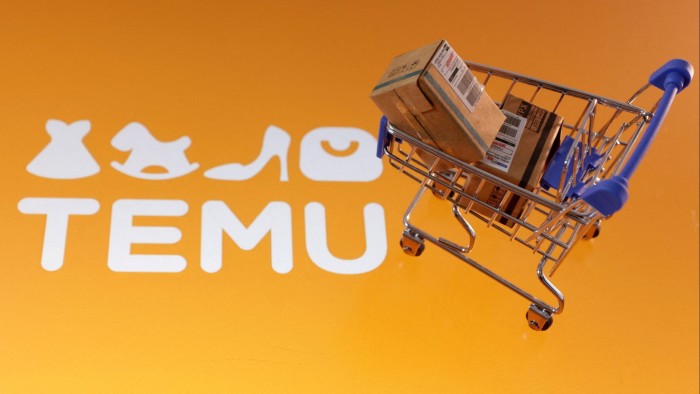Unlock the Editor’s Digest for free
Roula Khalaf, Editor of the FT, selects her favourite stories in this weekly newsletter.
Temu has stopped shipping low-cost items from China to sell directly to US consumers, as the Chinese ecommerce company overhauls its business model in response to the Trump administration’s tariffs.
Sales on Temu’s US marketplace — which sells households goods ranging from phone chargers to silicone toilet brushes — will now all be fulfilled from US-based sellers, rather than Chinese sellers, it said on Friday.
The company, which has been building a network of sellers in the US for more than a year, added that it was actively recruiting more merchants in the country. However, the decision to move away from Chinese sellers means its US business could shrink significantly as a result.
The changes have been made as the US scraps its “de minimis” customs rules, which exempted inbound parcels worth less than $800 from import duty.
From Friday, low-value shipments from China and Hong Kong will be subject to a 120 per cent tariff or a flat $100 fee, depending on how goods are delivered. The $100 fee will be doubled from June 1.
The sudden changes are posing major challenges to Temu and its rival Shein, which sells mostly cheap clothes. Both retailers exploited the “de minimis” exemption to undercut US retailers with cheap Chinese-made goods shipped directly to consumers.
The Financial Times reported this week that Shein is exploring whether to shift production for its US business out of China and that its long-awaited London stock market float was likely to be delayed further by the tariff changes. The fast-fashion retailer’s US business accounts for about a third of its $38bn in revenue.
Analysts estimate that the US is the biggest market for Temu, which is owned by Chinese company PDD Holdings.
“Temu’s pricing for US consumers remains unchanged as the platform transitions to a local fulfilment model,” the company said. “The move is designed to help local merchants reach more customers and grow their businesses. This shift is part of Temu’s ongoing adjustments to improve service levels.”
Temu will continue to source from Chinese sellers for its operations in other western countries.
Temu and Shein are two prominent victims of the US-China trade war. Washington has imposed tariffs of as much as 145 per cent on most Chinese goods, and China has retaliated with tariffs of 125 per cent.
Temu and Shein, which both fuelled their rapid growth with blanket social media advertising, have responded by slashing advertising spending in recent weeks.
Chinese officials signalled on Friday that Beijing was “evaluating” recent overtures from the US to begin trade talks. Beijing had previously suggested Washington should drop the steep levies if it wanted it to engage.


